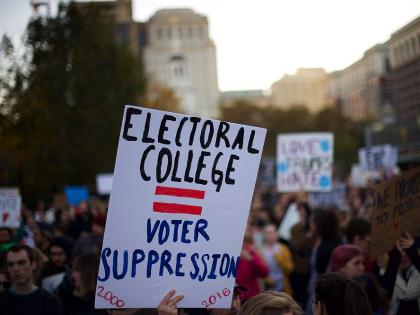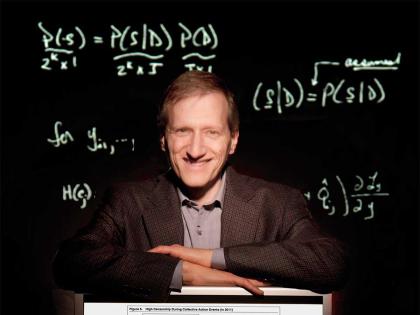Seemingly in unison, elite colleges like Harvard have in the last decade opened their doors to more students from poor families than ever before. Eighteen percent of today’s Harvard undergraduates receive federal Pell Grants (commonly used as a proxy for low-income status), up from 10 percent in 2004. Such progressive admission policies, aside from their obvious social benefits, have diversified the college experience at schools like Harvard (whose student bodies remain overwhelmingly wealthy). They’ve also forced colleges to learn, sometimes uncomfortably, that creating a more economically diverse student body can’t just be a matter of recruiting more economically disadvantaged students. It also must mean accommodating them.
Scholars in education and sociology have observed generally that low-income college students often feel culturally alienated from their better-off peers, fear approaching professors, and lack the experience to navigate elite social networks. Sociologist Anthony Jack, Ph.D. ’16, a Junior Fellow with a pending appointment at the Graduate School of Education, has begun to complicate this story. Jack emerged as a young leader in the study of inequality in the last year, with his work on the diversity among students from poor families. His theory splits low-income students into two classes: the “privileged poor”—those who attended private, well-resourced high schools—and the “doubly disadvantaged,” who went to public high schools. Poor undergraduates at selective schools come disproportionately from the first group, thanks to what Jack calls “an institutionalized pipeline through private education that begins at the very beginning of high school.” Think schools like Exeter and St. Paul’s.
Until recently, he argues, scholars have ignored this pipeline. (Jack, who counts himself among the privileged poor, went to Gulliver Preparatory School in Miami on a scholarship before attending Amherst College.) Students from this group are socialized among wealthier peers and better prepared for college-level work, he says; they become close with their teachers and learn to seek help from authority figures. For his recent paper in Sociology of Education, asking how privileged poor and doubly disadvantaged students differ in their strategies for engaging with professors, he interviewed 89 black and Latino students at an elite university in the Northeast; 20 were classed as privileged poor, 42 as doubly disadvantaged, and 27 from the middle and upper classes. (Rather than ask students directly about family income, he determined low-income status based on a combination of their financial-aid awards, whether their parents had gone to college, and whether their families received public aid. Students whose parents had graduated from college were automatically considered middle class, though this assumption is debatable.)
Poor students who attended private schools patterned with middle-class students: both groups reported feeling at ease about reaching out to professors, advisers, and other authority figures, behaviors they said they brought with them from high school. “Since my high school had mandatory tutorial hours for teachers,” one student said, “I was like, ‘If I need help here, I’ll just go to office hours.’” Help-seeking, Jack suggests, “is a mechanism through which students gain access to institutional resources.” The privileged poor feel entitled to professors’ time in a way that poor students from public high schools don’t. The latter weren’t merely uncomfortable interacting with professors one-on-one; many also believed the way to succeed was simply to work hard, without trying to curry favor with their superiors. “I was surprised,” Jack says, “by how meritocratic the doubly disadvantaged were, even though they were least likely to benefit from it. They would say, ‘I’ll succeed if I keep my head down and do good work, not networking.’”
The immediate implications of his research are obvious, Jack argues. Colleges need to become much better at accounting for the backgrounds of disadvantaged students. Harvard, for example, might create a summer “bridge” program, as other schools have done, to help less-prepared students transition to the norms of college life. A broader and more difficult cultural shift must also occur: professors must understand what is involved in working with students who may have been discouraged from approaching teachers, or who don’t know that challenging accepted ideas is part of the academic process.
More broadly, though, Jack sees the story of privileged poor and doubly disadvantaged students as a story about the breakdown of public education. Poor children shouldn’t need to gain arbitrary access to a prep school, and exit the public system, to get a suitable education; educational resources ought to be democratized. That the privileged poor students in his study patterned so closely with their better-off fellows may indicate something encouraging about children’s resilience: disadvantaged students can perform like their wealthy peers, given the right education and socialization.
“I’m still coming to terms with what it means to make recommendations for policy,” Jack says, commenting on the limitations of his work. His preliminary paper relied on qualitative interviews with just a few dozen students of color at one college. What about the experiences of poor white students, he asks, or those of other races or native countries? And there’s still the problem of how to figure out who counts as low-income. All these questions, he says excitedly, will guide future work.
Aiding the “Doubly Disadvantaged”

Anthony Jack is interested in diversity among low-income students.Photograph by Jim Harrison
Sub topics
You might also like
Talking About Tipping Points
Developing response capability for a climate emergency
Academia’s Absence from Homelessness
“The lack of dedicated research funding in this area is a major, major problem.”
The Enterprise Research Campus, Part Two
Tishman Speyer signals readiness to pursue approval for second phase of commercial development.
Most popular
More to explore
What is the Best Breakfast and Lunch in Harvard Square?
The cafés and restaurants of Harvard Square sure to impress for breakfast and lunch.
How Homelessness is a Public Health Crisis
Homelessness has surged in the United States, with devastating effects on the public health system.
Portfolio Diet May Reduce Long-Term Risk of Heart Disease and Stroke, Harvard Researchers Find
A little-known diet improves cardiovascular health through several distinct mechanisms.








